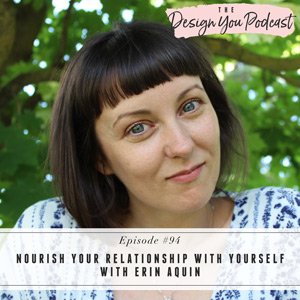
Welcome to the first interview episode of 2020! As we dive into bettering ourselves this year, I have the best guest to address a crucial part of this process with us today. I am so excited to bring you this conversation I had with Erin Aquin, a life coach who I’m currently in master coach training with. Erin came to life coaching as a yoga teacher, with a focus on helping people with their partnerships to create wildly beautiful lives.
Our relationships are so important to us, but it can be hard to enjoy the successes of your visions coming to life if your relationships are suffering in the process. Erin talks us through the importance of nourishing your relationship with yourself and how to integrate that with your goal setting practice. Erin is going to overhaul your whole perspective on how you might be keeping yourself stuck and reimagining not only your relationship with yourself but your bigger goals too.
Join us this week for some beautiful insight from Erin on enhancing your relationship with yourself. This work is going to positively affect every other area of your life in the process.
If you want to keep this conversation going, you have to join my free Design You Podcast community on Facebook. We have great conversations over there about the podcast episodes and our podcast guests are in there too! So head on over and I’ll see you there!





